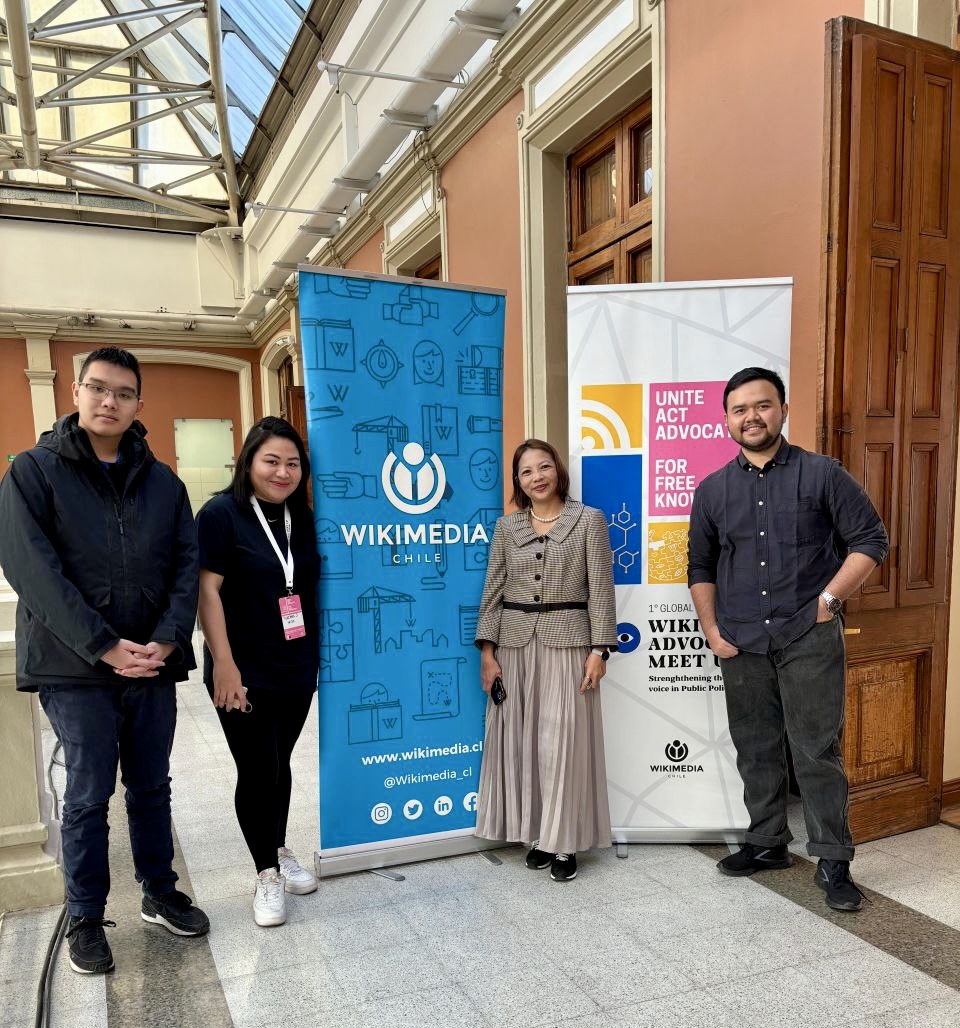
We have been long-time Wikimedians, and somehow participated in various Wikiprojects across the Wikiverse. We love the movement, we love the people within the movement and we share the same passion- open knowledge and knowledge sharing.
As the Wikimedia movement evolves, expands and grows exponentially, we need to safeguard our movement from internal and external risks, safeguard our own herd, build safety nets, police ourselves and sometimes yes, subtly lobby with policymakers.
We need to be recognized that we are not threats to democracy but we are part of the peace that we all aim to have across the globe. Sovereigns and states need to know that our business model in general is open, but does not pose risks that validate regulation and censorship, much less control.
We are glad to have been considered to be part of the public policy and advocacy network within. This network recently had a meetup entitled First WikiAdvocacy MeetUp hosted by Wikimedia Chile in the country’s charming capital, Santiago. It coincides with UNESCO’s celebration of the World Press Freedom Day and we also were quite lucky to grace the occasion.
About 40 individuals, coming from various countries, communities, diverse backgrounds but having one common denominator – passionate about public policy and advocacy. With a number of participants who are legalese, media, digital right advocates, human rights advocates, environmental advocates and advocates of ‘something important’ – the meetup and the network has a perfect mix up of policy people.
The meetup feels like home, the experience was surreal. It is high time the Wikimedia movement decided to really grow the public policy and advocacy department to nurture networks of people across the movement to become stewards and supporters of such.
As sovereigns evolve, society is being disrupted by technology and with the fast learning of the machines, governments believe that they should regulate more and intensify control. The fast paced disruption keeps authorities on their toes and therefore they try to snoop everywhere, even in areas where freedom reigns.
That is why, we really should equip ourselves with vast knowledge of the law, regulations and legislation from across the world. A decent knowledge of the law keeps the trouble away. If you know the law, the rules and regulations, there is a good chance you won’t be able to get in trouble? Why? Precisely because you know the law and if it is prohibitory or penal, then you will stay as much as possible from anything that entangles you with it. Knowing also brings power because if you know that it will be oppressive, unconstitutional, excessive and cruel, then we have a good standing chance of giving opinions, position papers or inputs to the legislation. We can also lobby and as a network, we do have templates, similar issues and legislations from other states that we can share together and use as reference whenever a position is required.
And we are so glad to have the Global Advocacy Team at the Wikimedia Foundation spearheading campaigns such as this meetup.
What Wikimedians may benefit from this policy network is that they can reference this group whenever they have concerns about legal issues in their communities. The field of law embodies almost everything except the natural phenomenon. So in cases where Wikimedians feel that there is a need to discuss a legislation that might affect their rights, then this group may be of help. In cases where legislations are stepping on their rights, then they may seek for guidance, insights, remedies or support from this policy network. If regulations become similar to other countries, Wikimedians at least have a group to compare notes with, learn and share best practices, discuss the repercussions and how to stay away from trouble.
Community members may also have another layer, a group or a community to turn to aside from the Foundation which is the current scenario that we see now. Remember that the Foundation is a juridical entity and it cannot always dip its hands into cases or issues outside of its primary purpose.
At least this policy network is composed of individuals from across realms and fields who may be of help and may extend support, education and guide in times of need.
In ESEAP, there are significantly more cases where the policy network is needed. It is not so secret that human rights violations, environmental rights abuses can be seen in some countries here. The more we need to grow the policy network so we can have more minds, more hands, louder voices and more advocates to steward our community.
We can strategize, we can come together, work together and protect each other when necessary, after all, we are just brothers, sisters and neighbors separated by islands, waters and language.

Can you help us translate this article?
In order for this article to reach as many people as possible we would like your help. Can you translate this article to get the message out?
Start translation